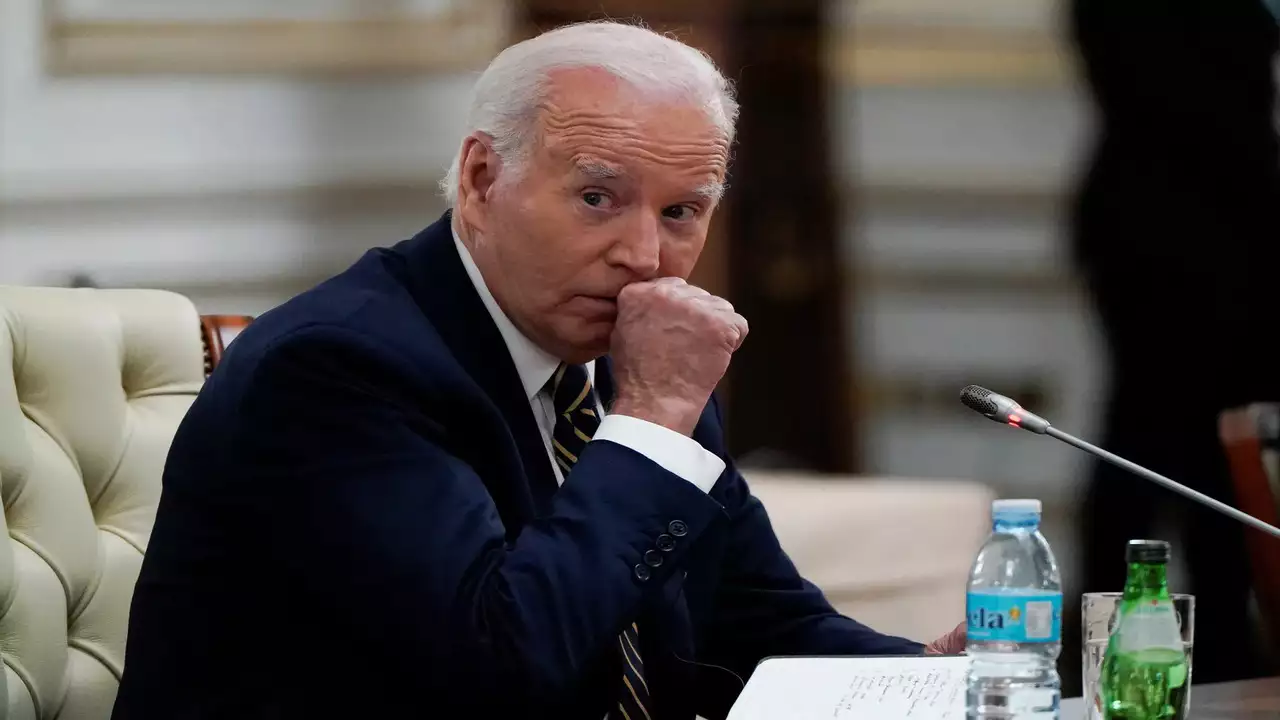The presidency of Joe Biden has faced scrutiny following revelations of White House staff allegedly concealing his mental health struggles from the onset of his tenure.
Reports suggest that efforts to manage his public image included adjusting his schedule, shielding him from negative news, and orchestrating high-profile events around his “good days and bad days.”
These revelations, coming from a New York Post report based on information from the Wall Street Journal, have sparked widespread debate about the transparency and functioning of the White House under Biden’s leadership.
Managing the Presidency: Adjustments from the Start
From the earliest days of Biden’s presidency in January 2021, White House staff reportedly implemented strategies to manage his declining mental acuity. His schedule was carefully curated to align with his fluctuating energy levels, prioritizing his appearances on days when he was more alert and composed. Meetings and events were reshuffled frequently, with staff avoiding scheduling high-pressure engagements on “bad days.”
Read : Biden Pardons Son in Gun and Tax Cases, Spares Him Possible Jail
A national security official reportedly described this approach candidly, stating, “He has good days and bad days, and today was a bad day so we’re going to address this tomorrow.” This acknowledgment of the president’s limitations highlights the extent to which staff went to ensure his ability to perform his duties without exposing vulnerabilities.
Joe Biden and his wife stroll along the beach after last week's presidential election.
— Sky News (@SkyNews) November 11, 2024
President Biden waved at reporters but declined to answer any questions.https://t.co/IYlYJKXfa9 pic.twitter.com/JYQfhG5KOf
Public appearances were limited, and when they did occur, they were tightly controlled. Biden faced criticism for holding fewer press conferences compared to his predecessors. When he did address the public, his reliance on notecards, teleprompters, and rehearsed responses was evident, leading to accusations that he was overly managed.
Navigating Gaffes and Public Perception
Joe Biden’s presidency was marked by a series of verbal gaffes and lapses, further fueling concerns about his mental fitness. These included mixing up names, forgetting key details, and losing his train of thought during speeches. Critics pointed to these instances as signs of cognitive decline, questioning his ability to lead effectively.
One particularly notable moment occurred during the first 2024 presidential debate against Donald Trump, where Biden appeared to struggle to articulate his points and maintain focus. Many observers deemed Trump the winner of the debate, with Biden attributing his performance to a “bad episode.”

In October 2023, Biden faced another test of his mental stamina during preparations for an interview with Special Counsel Robert Hur regarding classified documents. Reports indicate that his preparation sessions lasted three hours daily, underscoring the significant effort required to ready him for such high-stakes engagements.
Behind the scenes, efforts were made to mitigate the impact of Biden’s struggles on his public image. The White House reportedly hired voice coach Jeffrey Katzenberg to help improve Biden’s tone and delivery. Staff also filtered his daily news briefings, removing negative stories to prevent them from affecting his morale or focus.
The End of Biden’s Presidency and the Fallout
As Biden’s mental health struggles became increasingly apparent, pressure mounted from within his party for him to step aside.
Following a disappointing performance in the 2024 presidential debate and growing concerns among Democratic donors and party officials, Biden announced his decision to exit the presidential race in July 2024. He endorsed Kamala Harris as the Democratic candidate, who ultimately faced defeat in the general election against Donald Trump.

The management of Biden’s presidency raises questions about the ethical and practical implications of shielding a leader’s health from public scrutiny. While his administration touted significant accomplishments, critics argue that transparency about his condition could have allowed for a more informed evaluation of his leadership.
Deputy Press Secretary Andrew Bates defended Biden’s presidency, calling his record “the most accomplished of any modern commander-in-chief.” However, the revelations about the extensive measures taken to manage his public image have cast a shadow over his legacy, sparking debates about age, health, and fitness for the presidency in American politics.

